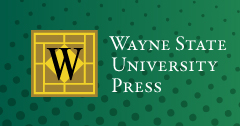Abstract
Dealing with the sensitive issue of the ongoing Israeli-Palestinian conflict and Britain’s historical responsibility in laying ground for it, Peter Kosminsly’s epic TV serial The Promise has created a heated and polarizing public debate since it was first aired on UK’s Channel 4 in early 2011. Despite its flaws and biases, the drama is powerful in its portrayal of the multi-generational drama that is Israel-Palestine. This is an epic production that recounts the story of the conflict in two parallel narratives situated in two different eras: the first spans from 1945 to 1948; the second takes place in 2005. By nature, The Promise possesses incendiary qualities: Whereas Israeli officials saw it as “hostile” to Israel, some reviewers noted Kosminsky’s portrayal of the Arab characters as the Oriental Other. Perhaps one of the main challenges that Kosminsky has set for his viewers and critics is his portrayal of several cross-national, crossreligious relationships. It is the merciless depiction of supposedly transgressive acts of reaching out to rivals that spells out Kosminsky’s bleak stance on the current state of affairs and its history. Indeed, while attempts at forming romantic relationships are abundant in The Promise, expressions of true love and affection seem to be missing. Instead, romance is yet another tool in a system whose role is to monitor, control, and conquer; lovers are often sworn enemies; and relationships are motivated by political ambitions and emotions. This essay will explore Kosminsky’s vision of Israel/ Palestine both in the 1940s and today—one in which the concept of love is often marred by violence and undermined by a national cause, and the only attachment allowed is that of a man to his land.
Recommended Citation
Cohen, Nir
(2013)
"Love and Surveillance: Politicized Romance in Peter Kosminsky’s The Promise,"
Jewish Film & New Media: Vol. 1:
Iss.
1, Article 3.
Available at:
https://digitalcommons.wayne.edu/jewishfilm/vol1/iss1/3

